foreign currency
Sikder Group responds to allegations following ACC case against directors
Sikder Group, a prominent business conglomerate in Bangladesh, has issued a statement in response to various media reports regarding a case filed by the Anti-Corruption Commission (ACC) against its directors, Rick Haque Sikder and Ron Haque Sikder. The group alleges that certain vested interest groups are conspiring to tarnish its reputation by disseminating misleading information.
The statement highlights that the accusations, particularly concerning alleged money laundering involving National Bank's credit card, are unfounded. It clarifies that the Sikder Group directors lawfully utilized $9.83 million abroad through credit cards, subsequently settling the total amount, including $2.04 million in interest and charges, from their foreign earnings in accordance with Bangladesh Bank regulations. This matter was resolved two years prior, and the recent resurgence of these allegations is deemed to be maliciously motivated, the statement says.
Additionally, Sikder Group explains that the credit cards in question were linked to Foreign Currency (DC) accounts, which are exempt from the standard $12,000 travel quota limit.
Eid holiday: Trade activities through Benapole port to be suspended for 5 days
The conglomerate emphasizes its longstanding commitment to ethical business practices both domestically and internationally. Sikder Group, founded by Freedom Fighter Zainul Haque Sikder, has made significant contributions to Bangladesh's development sectors, including healthcare, education, and infrastructure, the statement says.
The group suggests that the malicious targeting has intensified following the death of its founder, Zainul Haque Sikder. It asserts that under the leadership of Rick Haque Sikder and Ron Haque Sikder, it has continued to achieve remarkable progress, despite ongoing attempts by detractors to hinder its growth. The statement condemns these actions, especially at a time when Sikder Group is endeavoring to secure foreign investment for key national projects, and calls on the public to disregard the baseless accusations circulated by these conspirators.
1 year ago
Growing backlog in payments to independent producers a bottleneck in power sector
The growing backlog in payment obligation is emerging as a major problem in Bangladesh's power sector that may impede the growth of the sector.
According to official sources, the payment mode in Bangladesh Government's power purchase agreement (PPA) with the private sector has mainly been made in foreign currency, specially, the US dollar.
As per the existing arrangement, as a single payer the state-owned Bangladesh Power Development Board (BPDB) pays to the private power producers in local currency against its purchase of electricity.
Under the PPA, the private power producers are allowed to convert the payments into US dollars to meet their different kinds of payment obligations like bank loan, fuel and machinery imports and also paying foreign staff salaries.
If the investors are foreign companies, they can repatriate their profits in US dollars, said the officials of the BPDB.
They also noted that the BPDB always remains in constant contact with power producers, their banks and the central bank to smooth the foreign currency repatriation.
But following the dollar crisis in the country, official sources said in recent months, both the BPDB and the private power producers have been experiencing severe problems in getting dollars from their banks and also from the Bangladesh Bank.
Official sources said the BPDB has been struggling to keep up with its payments owed to the private power producers for more than a year.
Officials at the Power Division and BPDB said currently the total owed to the Independent Power Producers (IPPs) is $3.5 billion (equivalent to over Tk 35,000 crore) as of September 2023.
Read: Rooppur Nuclear Power Plant to receive fresh batch of uranium from Russia’s Rosatom at ‘Graduation Ceremony’ tomorrow
As per contract with the government, the IPPs are facing dual problems with their bills. First, they are not getting bills on time and secondly, they are getting partial bills, but not being able to convert the payment into foreign exchange due to the dollar crisis.
A top BPDB official admitted the problem to UNB, saying that they had reached an understanding with Bangladesh Bank under a mediation of the Finance Ministry that the central bank will provide on average $20 million every day to BPDB to cover its costs.
“But we’re not getting more than $10-15 million a day,” a top BPDB official told UNB on condition of anonymity as the issue is very sensitive and he is not allowed to speak on the issue.
He also said that if measures are not taken to contain the growing dues in the power sector it will further aggravate the problem.
Read: Japan provides $1500 million to implement Matarbari coal-fired power plant
Admitting about the payment backlog, Imran Karim, former president of Bangladesh Independent power Producers Association (BIPPA), said the government should take necessary measures to clear the dues in the power sector.
"Otherwise, it will accumulate the dues and create a major problem in the sector", he told UNB.
Energy experts said the country is heading for problems in the power sector and it would have a big impact on the overall economy pushing up inflation further.
Eminent energy expert and advisor to the Consumers Association of Bangladesh (CAB) Prof M Shamsul Alam said the government has been put in such a major problem because of its wrong planning in the power sector.
He said that as a result of the wrong planning, the country is witnessing 50 percent surplus power in summer and 70 percent in winter, for which it is heading towards a disastrous situation.
“There will be a big indiscipline in the power sector as pressure for private sector’s capacity payment will continue to go up while import of primary fuel will be increasing. Finally, it will lead to energy insecurity,” he told UNB.
Read more: Cabinet purchase body approves proposals including 3 solar power plants in private sector
2 years ago
Top 10 Strongest Currencies in the World in 2023
Currencies are the backbone of the global economy, providing a means of exchange and facilitating international trade. Some currencies, however, are considered stronger and more valuable than others, which makes them particularly attractive to investors and traders. These are the top ten most valuable currencies in the world in 2023, based on their exchange rates against the US dollar.
How is foreign currency priced?
Foreign currency is priced based on its exchange rate, which represents the value of one currency in terms of another currency. Exchange rates are determined by the supply and demand of each currency in the foreign exchange market. The value of a currency can fluctuate based on a variety of factors, including economic conditions, political events, and changes in interest rates.
In general, when a currency is in high demand, its value will increase relative to other currencies, and when it is in low demand, its value will decrease. For example, if there is a high demand for U.S. dollars, its exchange rate will likely rise compared to other currencies, and vice versa.
Exchange rates can be quoted in two different ways: as a direct or an indirect quote. In a direct quotation, the foreign currency is the base currency; while in an indirect quote, the domestic currency is the base currency. For example, in Bangladesh, the exchange rate between the U.S. dollar and BDT is 107.52. This means that 1 U.S. dollar can be exchanged for BDT 107.52 (direct quote) or BDT 1 can be exchanged for 0.0093 U.S. dollars (indirect quote).
Foreign currency can be purchased and sold in the foreign exchange market through banks, brokers, or online platforms. The exchange rate at the time of the transaction will determine the cost or value of the currency being exchanged.
Read More: How to Identify Fake Currency Notes in Bangladesh
Which are the Top 10 Strongest Currencies in 2023?
Whether you are a seasoned investor or simply curious about the global financial landscape, the world's 10 strongest currencies will provide you with valuable insight.
Kuwaiti Dinar
The Kuwaiti Dinar (KWD) is considered the strongest currency in the world with a value of 1 KWD equaling 3.26 USD and 347.65 BDT. The KWD is unpegged, allowing it to move freely, and is supported by Kuwait's sizable sovereign wealth fund managed by the Kuwait Investment Authority.
The economy of Kuwait is heavily dependent on oil and gas exports, making it vulnerable to fluctuations in global crude oil prices. However, the KIA has drawn up a plan to counter this and ensure the value of the KWD remains strong and stable.
Read More: How to safely send remittance to Bangladesh?
2 years ago
Int'l Travel and Tourism Expo to kick off from Dec 1
A three-day long first-ever Bangladesh International Travel and Tourism Expo (BITTE) will be held in the city from December 1 with a view to improving the quality of the country's tourism services to earn foreign currency.
Association of Travel Agents of Bangladesh (ATAB) will organise the expo at Bangabandhu International Conference Center, said the organisation’s President SM Manzur Murshed Mahbub at a press briefing on Tuesday.
Read more: ATAB to host tourism expo Dec 1-3; deal with “Air Astra” signed
The Expo will run till December 3 from 10 am to 7 pm and seminars will be held on three topics over these days.
Some of the activities are related to the Ministry of Civil Aviation and Tourism such as product branding promotion of the tourism industry, traditional food exhibitions, embassies of different countries and the high commissions.
Airlines, hospitals, tourism boards, Travel agencies, tour operators, hotels, resorts, cruise liners, destination management companies and other travel and tourism sector service providers in more than 15 countries including India, Malaysia, Bhutan, Nepal, Maldives, Oman, Sri Lanka, Turkey, Azerbaijan, South Korea, Vietnam, Singapore, United Arab Emirates have already confirmed their participation as exhibitor Air Astra BITTE.
Read more: Master plan for tourism in Bangladesh to be formulated in Dec: State Minister
By participating in the Expo, business connections and relationships will be created between travel agents and tour operators and the country's public will get to know about global travel information, packages and air tickets, said ATAB President.
General Manager Mozammel Haque on behalf of title sponsor Air Astra and General Manager Public Relations Kamrul Islam of sponsor US Bangla Airlines attended the press conference along with other invited guests.
3 years ago
Fish scales: A promising new item to diversify exports
Fish traders in Jashore have started to earn much needed foreign currency by selling fish scales.
Fish scales are sold at a rate of Tk 15 a kg in the fish markets of the district. After some processing, these residual parts of fishes are exported to many south-east Asian countries including China and Japan.
According to Export Promotion Bureau statistics, Bangladesh exports fish scales worth Tk 200 crore every year. Fish scales are used to produce batteries, electrical products, artificial cornea and bones, medicines, fish and poultry feed and various cosmetics items.
Visiting many fish markets in Jashore, UNB found fish scales in high demand. Besides charging Tk 10 for cutting a 1kg fish, fish cutters of Jashore earn Tk 20,000 extra per month by selling the scales.
“Not only scales but we also sell fish galls. Galls are used to produce fish feed, while gills of fishes are used to make soups after drying,” said Md Jahid, a fish cutter.
Read more: Bagerhat's Dublar Char abuzz as fish drying season begins Bagerhat's Dublar Char abuzz as fish drying season begins
Md Bablu is a warehouse owner who collects fish scales from various fish markets of Jashore on a daily basis. Talking to UNB, Bablu said that he sells fish scales to traders in Chattogram, who then export the item to other countries.
“I sell fish scales at a rate of Tk 2500 to Tk 3000 per maund (1 maund = approx. 40kg). The business was first started by a Dhaka-based trader named Shamsul Alam. Fish scales contain chemical components like collagen fibre and amino acid, which are necessary to produce cosmetics items and medicines,” said Bablu.
After talking to some traders, UNB learned the process by which fish scales are prepared for selling.
First, fish scales are collected and washed in clean or warm water to get rid of oily substances. After washing, wet scales are dried in the open to make them crispy.
Some people grind the scales in mixers and sell them as powder.
Prices of fish scales vary according to the type and size of fish from which they come. Scales of big fish are sold at high rates, while those of small fish like shrimp are sold at a different rate. Besides, the prices of fish galls and gills are also different from the prices of scales.
According to Bangladesh Export Processing Zones Authority, only 10-12 traders are involved in exporting fish scales. However, around 5,000 people are directly involved with the trade. A total of 2,500 tons of fish scales are exported every year, which brings home foreign currencies worth Tk 200 crore.
Read more: Cox’s Bazar fishermen rejoice as Bay swarms with Hilsa
Fish scale traders said that their business has the potential to grow more if they receive priority and focus from the government.
“I’ll talk to the respective authorities so that fish scale business can be expanded,” said Tamijul Islam Khan, Deputy Commissioner (DC) of Jashore.
3 years ago
What are the 3 reasons behind Bangladesh’s falling forex reserves?
Despite curbing imports, Bangladesh’s foreign exchange reserve fell to USD 36 billion – the lowest in 28 months – due to 3 reasons, economists believe.
The reasons are an imbalance in export-import, high dependency on imported oil and gas, and decreasing trend in inward remittance flow.
The forex reserves stood at USD 35.98 billion on Wednesday, according to data from Bangladesh Bank. The country’s reserve was USD 46.19 billion a year ago (October 19, 2021).
Read: Forex market may be more volatile unless reforms are done
Former governor of Bangladesh Bank, Dr Salehuddin Ahmed, told UNB, increasing the flow of inward remittance and curtailing import liabilities are ways to secure forex reserves, as exports are facing a slump due to the Russia-Ukraine war.
Despite increasing the cash incentives to 2.5 percent from 2 percent in the current fiscal year (2022-23), the inward flow of remittance saw a fall of 25 percent in September compared to August.
Bangladesh is receiving an average of USD 59.22 million inward remittance per day in the current month through banking channels which was USD 76.66 million in July.
Read: Bangladesh’s forex reserves now $36.90 billion
The fiscal year started with a growth trend of inward remittance while the country received USD 2.09 billion in July and USD 2.03 billion in August. But remittance fell to USD 1.54 billion in September.
Dr Abdur Razzaq, a trade expert and a former researcher of WTO, said overall exports of Bangladesh have declined by 6.25 percent in the last month, mainly due to a decline in apparel exports.
The export of readymade garments was worth USD 3.16 billion in the previous month, which is 7.52 percent lower than in September last year. Export of both woven and knit garments declined last month, he said.
Read Market-based foreign exchange rate may be introduced soon
Exporters of readymade garments have said that inflation in the USA and EU countries has become severe due to the Russia-Ukraine war. People there have cut back on purchases other than fuel and groceries.
Because the foreign buyers have reduced new purchase orders, some companies were not allowing shipment even after the products were ready, sector insiders said.
Higher dependency on importing oil and LNG gas, directly and indirectly, affected the foreign exchange reserves. The foreign exchange payment liabilities have been surging due to increasing oil and gas prices in the global markets.
Read Explainer: What it means to let taka float
3 years ago
HSBC introduces domestic foreign currency transaction through RTGS
The Hongkong and Shanghai Banking Corporation (HSBC), along with Bangladesh Bank (BB), has initiated foreign currency (FCY) transaction solution through real-time gross settlement (RTGS) clearing of the central bank.
This solution will enable HSBC’s valued customers to make domestic foreign currency payments to other participating bank’s FCY accounts and to receive FCY payments from other participating bank’s FCY accounts, according to a media release issued today.
Additionally, under the trade umbrella, HSBC can now receive domestic export payments and execute domestic import payments besides receiving fund transfer via FCY RTGS from other bank margin accounts/ERQ account for import liability settlements.
Read BB lets dealers to open foreign currency deposit accounts
Earlier, domestic foreign currency settlement was executed through FCY demand draft (FDD), drawn on Bangladesh Bank, which required multiple days.
This previous process was time-consuming as the transaction details had to be checked and validated manually.
HSBC has been continuously introducing smooth and convenient digital services through its online platform, HSBCnet.
Through the establishment of domestic foreign currency settlement through RTGS, clients will be able to make their cash management payments online which remove their need to physically visit bank premises and handle paper-based instruments like FDD. As the FCY RTGS process is automated, the transaction will be faster, safer and more secured.
Read Cellfin launches Mastercard dual currency prepaid card
Payments will now be processed easily without any hassle and fund realisation for payee will be faster.
This will result in shorter processing time as transactions will be completed near real-time using RTGS instead of multiple days using FCY DD.
HSBC said it is determined to create opportunities for its clients to avail of smooth and convenient services.
Thus, with the introduction of new customised products like foreign currency transaction solutions via RTGS, HSBC is continuously making its customer journey easier.
Read Bangladesh Bank to flirt with digital currency en route to cashless society
3 years ago
Bangladesh Bank yet to allow Indian rupee in foreign trade
Bangladeshi businesses cannot use Indian rupee for foreign trade as Bangladesh Bank is yet to enlist the currency to settle letters of credit (LCs).
BB spokesperson and executive director Md Serajul Islam told UNB that the central bank is yet enlisted Rupee for foreign trade.
He said that Bangladesh Bank is reviewing currency diversification in foreign trade to reduce sole dependence on the US dollar.
Read:“Use rupee, taka”: India asks exporters to refrain from trading in dollars with Bangladesh
Before allowing any foreign currency for trading, the central bank has maintained an exchange stander, and stability in line with the IMF standard, he said.
Businesses said if trade between Bangladesh and India happen in local currencies, pressure from falling US dollar reserves and associated ongoing forex market instability can be reduced.
They said India is the second largest source of imports of raw materials and other goods for Bangladesh. Industrial raw materials, capital machinery, cotton, yarn, fabrics, and chemicals worth USD 16.19 billion were imported from India in the fiscal year 2021-22.
Read:Bangladesh’s forex reserves now $36.90 billion
At the same time, Bangladesh exported goods worth USD2 billion to the neighbouring country.
On September 15, Bangladesh Bank allowed banks to open accounts in the Chinese currency yuan.
IMF has recognized five countries’ currencies as “high-value”. The Chinese yuan was admitted to IMF’s high-value currency basket in 2016. Since then, the yuan has become stronger than ever as per a currency review by the IMF.
Read Sri Lanka hopes to reach initial agreement with IMF for help
3 years ago
Man detained with huge amount of foreign currency at Benapole checkpost
Members of Border Guard Bangladesh (BGB) detained a Bangladeshi passport-holder with a huge amount of foreign currencies of US, Saudi Arabia and Canada at Benapole International Checkpost Terminal in Jashore district on Saturday noon.
The detainee has been identified as Md Ashiq Mia, son of Nurul Hoque of Masterkandi village in Shariatpur district.
Minhaj Siddque, Lieutenant Colonel of BGB-49, said on information they conducted a drive in the terminal area and detained him due to his suspicious movements.
Read: Woman held with 30,000 USD in Benapole
Later, $22,300 (USD), 75,000 Saudi Arabian Riyal, 10,000 Canadian Dollars and 8 bottles of foreign liquor were recovered from his possession, said Siddique.
The detainee was handed over to Benapole Port Police Station, the BGB officer added.
3 years ago
Digital Bangladesh: World’s 7th largest data centre eyes foreign currency
The National Data Centre is eyeing to be a huge potential source of earning foreign currency as many foreign firms now show interest in storing their data in the center.
The world's 7th largest data centre, set up at Bangabandhu Hi-Tech City in Gazipur, has already started saving the country’s foreign currency in millions of dollars by reducing its foreign dependence on data preservation.
Alongside ensuring the security of the country’s data, the tier-IV data center is now saving Tk 353 core annually as Bangladeshi firms don’t need to preserve their data in foreign lands, according to officials of Bangladesh Data Centre Company Limited (BDCCL).
Read: All govt data to be stored at Kaliakair Data Centre
Besides, the present government set up the Tier-IV National Data Centre on a 7-acre land as part of transforming the country into ‘Digital Bangladesh’ in line with its 2008 electoral manifesto. Prime Minister Sheikh Hasina inaugurated the data Centre on November 28, 2019.
“Now any organisation of Bangladesh can store their data in the Tier-IV National Data Centre. Even foreign organisations are showing their interest to store their data here in the heart of Digital Bangladesh,” said company secretary of BDCCL, AKM Latiful Kabir.
Noting that the world standard data centre has ensured data localization in the country, he said if agreements are signed with the foreign firms, the centre would be a great source of earning foreign currency.
Read Top 10 In-demand Tech Skills Freshers Should Learn in 2022
Terming the data centre as the “brain” of Digital Bangladesh, State Minister for ICT Division Zunaid Ahmed Palak said it is the host of everything, including 55,000 websites, 11 crore National Identity Cards, e-Nothi, Surokkha and registration system.
Noting that the G-Cloud based data centre will have unlimited capacity of preserving data, he said, “We hope we could launch the G-Cloud of Oracle technology within the next six or 12 months. And it will be the largest G-Cloud platform in the Southeast Asia.”
4 years ago
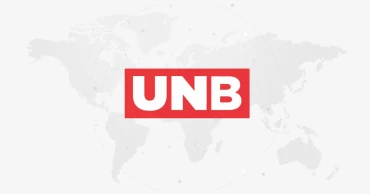
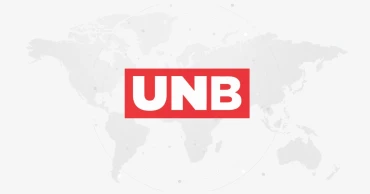
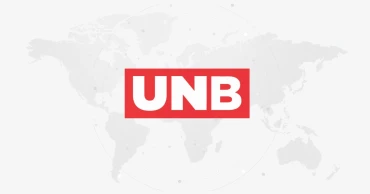
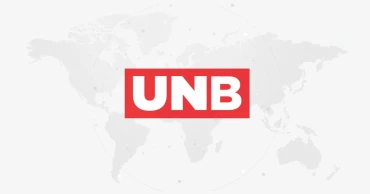
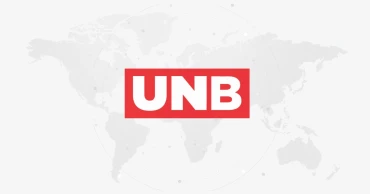
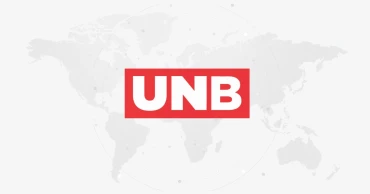
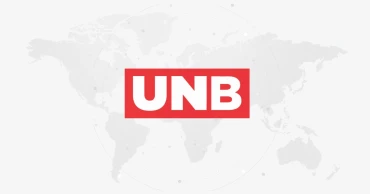
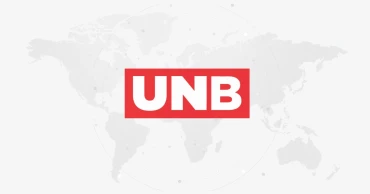

.jpg)







